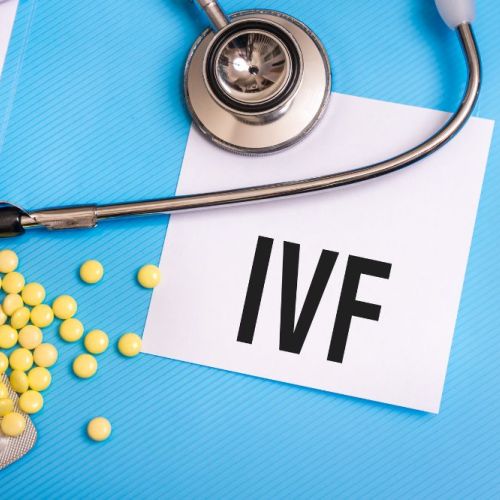Hypothyroidism and Miscarriage: What Expectant Mothers Need to Know

Hypothyroidism is often overlooked but it can have a significant impact on pregnancy, particularly miscarriage. Medical research has shown that women with a history of miscarriage or infertility may have mild hypothyroidism or test positive for thyroid antibodies.
If you are trying to conceive or already pregnant, it is important to understand the relationship between thyroid function and pregnancy. Although the thyroid is a small gland, it controls many important hormonal functions that are crucial for reproductive health. In this article, we will discuss hypothyroidism, its impact on pregnancy, and how it can be managed to ensure a healthy pregnancy.
Hypothyroidism & Pregnancy: What You Need to Know
What Is Hypothyroidism?
Hypothyroidism is a condition where the thyroid gland doesn’t produce enough of the hormones the body needs to function properly. The two main hormones produced by the thyroid are T3 (triiodothyronine) and T4 (thyroxine). These hormones play a vital role in regulating many bodily functions, including metabolism, energy, and temperature. When the thyroid isn’t functioning properly, the body may experience symptoms such as fatigue, weight gain, constipation, dry skin, hair loss, and increased sensitivity to cold.
In terms of reproductive health, hypothyroidism can disrupt menstrual cycles, affect ovulation, and reduce fertility. During pregnancy, untreated hypothyroidism can lead to a number of complications, including miscarriage. Thyroid autoimmunity exacerbates the risks associated with subclinical hypothyroidism during pregnancy, significantly increasing the rates of miscarriage compared to those with isolated SCH or normal thyroid function. Early diagnosis and treatment, which may include levothyroxine, is important to restore hormone levels and reduce associated risks.
How Common is Hypothyroidism in Pregnancy?
Hypothyroidism is a common condition in pregnancy, affecting approximately 2-3% of pregnant women. However, subclinical hypothyroidism, where the thyroid gland does not produce enough thyroid hormones but the levels are not low enough to be considered overt hypothyroidism, is even more prevalent. This condition affects around 5-10% of pregnant women. The prevalence of hypothyroidism in pregnancy can vary depending on the population being studied and the criteria used to define the condition. Understanding these statistics is crucial for expectant mothers, as it underscores the importance of regular thyroid function screening and proactive management to ensure a healthy pregnancy.

Types of Hypothyroidism
There are several types of hypothyroidism, each with different implications for health and pregnancy:
- Overt Hypothyroidism: This more severe form of hypothyroidism is characterized by elevated TSH (thyroid-stimulating hormone) and low T4 levels. Symptoms are more pronounced and include fatigue, weight gain, and cognitive difficulties. If left untreated, overt hypothyroidism can increase the risk of miscarriage and other pregnancy complications. It is important to seek medical attention immediately if you are diagnosed with overt hypothyroidism.
- Subclinical Hypothyroidism: This mild form of hypothyroidism is marked by high TSH levels while T4 remains normal. It can be difficult to diagnose because symptoms are often mild and nonspecific. However, subclinical hypothyroidism can still pose risks during pregnancy, including early pregnancy loss and developmental issues. Regular thyroid screening and, if necessary, hormone replacement are important for managing these risks.
Both forms of hypothyroidism highlight the importance of regular thyroid function screening, particularly for women of childbearing age. It is important to monitor thyroid health before conception and during pregnancy to optimize reproductive outcomes.
The Role of Thyroid Function in Pregnancy
Thyroid hormones play a vital role during pregnancy, particularly in the first trimester when the fetus is developing. In the first trimester, the fetus relies entirely on the mother’s thyroid hormones, as its own thyroid gland is not yet functioning. Adequate thyroid hormone levels are necessary for fetal brain development and other vital organs. If maternal thyroid hormones are insufficient, fetal growth can be restricted, leading to potential complications such as developmental delays and growth restriction.
For mothers, poorly managed hypothyroidism can lead to a range of complications, including fatigue, anemia, and increased risk of preeclampsia, among others. Babies born to mothers with untreated hypothyroidism may experience low birth weight and developmental challenges. Early diagnosis and effective management are important to minimize these risks and ensure a healthy pregnancy.
Hypothyroidism & the Elevated Risk of Miscarriage
Numerous studies have demonstrated a link between hypothyroidism and an increased risk of miscarriage, particularly in the first trimester. Thyroid hormones play a critical role in maintaining the delicate balance of hormones necessary to support pregnancy. If thyroid hormone levels are insufficient, implantation and early fetal development can be disrupted, increasing the risk of early pregnancy loss.
Low T4 levels, a hallmark of thyroid dysfunction, can lead to hormonal imbalances that compromise the pregnancy’s viability. Fortunately, treatment with levothyroxine has demonstrated efficacy in significantly reducing miscarriage risks for women with hypothyroidism. Regular monitoring and medication adjustments are important for maintaining optimal thyroid hormone levels throughout pregnancy.
Autoimmune Thyroid Disease & Its Implications for Miscarriage
Understanding Autoimmune Thyroiditis
Autoimmune thyroiditis, including Hashimoto’s thyroiditis, is a condition in which the immune system mistakenly attacks the thyroid gland, causing chronic inflammation and impaired hormone production. The presence of thyroid autoantibodies, particularly thyroid peroxidase (TPO) antibodies, is a marker for autoimmune thyroiditis. Measuring thyroid peroxidase antibody levels is significant in assessing the risk of miscarriage in pregnant women with autoimmune thyroiditis, as it helps categorize women and evaluate their risk of early pregnancy complications. Women with autoimmune thyroiditis are at increased risk for pregnancy complications, including miscarriage, due to the underlying thyroid dysfunction and immune response that disrupts hormonal balance.
Impact on Pregnant Women
Pregnant women with autoimmune thyroiditis face unique challenges that increase the risk of complications throughout their pregnancies. Research has shown that the presence of thyroid antibodies, even in women with normal thyroid hormone levels, is associated with increased pregnancy difficulties. Early detection through blood tests for TPO antibodies is important, and proactive management, including hormone replacement therapy, can improve outcomes.

Subclinical Hypothyroidism & Its Risks
Definition and Diagnosis
Subclinical hypothyroidism is characterized by elevated TSH levels with normal free T4 levels. It is often difficult to diagnose because symptoms are mild and nonspecific. However, it poses significant risks during pregnancy, particularly for women with a history of fertility issues. Routine thyroid testing is important for early identification and intervention.
Adverse Pregnancy Outcomes
Women with subclinical hypothyroidism are at a heightened risk for miscarriage, preterm delivery, and low birth weight. Even mild thyroid dysfunction can impair placental function and fetal development. Early detection and treatment can mitigate these risks, improving the chances of a successful pregnancy.
Recurrent Miscarriage and Subclinical Hypothyroidism
Studies have shown a link between subclinical hypothyroidism and recurrent miscarriage. Even mild thyroid dysfunction can negatively impact uterine conditions, hindering successful implantation. Correcting thyroid dysfunction through appropriate hormone replacement therapy can enhance fertility and increase the likelihood of carrying a pregnancy to term.
Hypothyroidism & Miscarriage by Trimester
First Trimester Risks
The first trimester is a critical period for fetal development, and low thyroid hormone levels can disrupt implantation and early growth, increasing the risk of miscarriage. Early intervention through thyroid hormone replacement therapy is vital during this period.
Second Trimester Complications
In the second trimester, untreated hypothyroidism can lead to severe complications, including placental abruption and preterm labor. Proper management of thyroid function is essential to support fetal development and reduce risks.
Late Miscarriage Concerns
Late miscarriages, occurring after 12 weeks, may be linked to placental insufficiency and immune responses exacerbated by untreated hypothyroidism. Regular monitoring and medication adjustments are crucial to minimize these risks.
Treated vs. Untreated Hypothyroidism & Miscarriage
Treated Hypothyroidism
For women receiving appropriate treatment with levothyroxine, the risk of miscarriage is significantly reduced. Regular follow-ups and medication adjustments are important to maintain optimal thyroid hormone levels throughout pregnancy.
Untreated Hypothyroidism
Conversely, untreated hypothyroidism poses significant risks, including increased chances of miscarriage and developmental delays in the baby. Proactive management is important for ensuring a healthy pregnancy.
Monitoring Thyroid Function During Pregnancy
Importance of Regular Testing
Regular monitoring of thyroid hormone levels is important for maintaining maternal and fetal health. For women with a history of thyroid disorders, frequent testing is important to ensure hormone levels remain within the ideal range.
Normal Thyroid Function in Pregnancy
Normal thyroid function is essential for a healthy pregnancy. During pregnancy, the thyroid gland ramps up production of thyroid hormones to meet the increased demands of both the mother and the developing fetus. These hormones are vital for fetal growth and development, particularly for brain development. As a result, thyroid hormone levels in pregnant women are typically higher than in non-pregnant women. The American Thyroid Association recommends that pregnant women undergo thyroid function tests (TFTs) to assess their thyroid hormone levels and ensure they are within the normal range. Regular monitoring helps in early detection and management of any thyroid dysfunction, promoting a healthy pregnancy outcome.
Guidelines from the American Thyroid Association
The American Thyroid Association recommends specific TSH levels to minimize risks during pregnancy, recommending that TSH levels be maintained between 0.2-<2.5 mU/L in the first trimester of pregnancy and between 0.3-3 mU/L in the remaining trimesters. Adhering to these guidelines is important for ensuring optimal thyroid function and promoting healthy pregnancy outcomes.
Fertility Options for Women with Hypothyroidism
Preconception Health
Optimizing thyroid health before conception is important for improving fertility. Comprehensive thyroid testing and treatment adjustments can enhance reproductive health and reduce the risk of complications.
Fertility Treatments
For women facing infertility despite optimal thyroid management, fertility treatments such as IVF and artificial insemination (IUI) may be viable options. Ensuring stable thyroid hormone levels during these procedures is important for maximizing success.
Lifestyle Changes
In addition to medical treatments, lifestyle modifications can support fertility. A nutrient-rich diet, regular exercise, and stress management techniques can enhance overall reproductive health.
Reducing the Risk of Miscarriage & Ensuring Healthy Pregnancy Outcomes
Reducing the risk of miscarriage is crucial for a healthy pregnancy outcome. Several factors can increase the risk of miscarriage, including thyroid disease, autoimmune thyroid disease, and subclinical thyroid dysfunction. Women with thyroid disease or autoimmune thyroid disease are at a higher risk of miscarriage, making effective management of these conditions essential. Regular thyroid function tests, appropriate hormone replacement therapy, and close monitoring by healthcare providers can significantly reduce the risk of miscarriage. By proactively managing thyroid dysfunction, expectant mothers can improve their chances of a successful and healthy pregnancy.
By prioritizing thyroid health and collaborating closely with healthcare providers, women with hypothyroidism can achieve healthy pregnancy outcomes. Routine monitoring, timely interventions, and a comprehensive care plan are important for success. Schedule an appointment with our fertility clinic today to explore personalized options for fertility treatments and pregnancy care.
Quick Answers to Common Questions
How does hypothyroidism affect getting pregnant?
Hypothyroidism can disrupt ovulation and menstrual cycles, complicating conception. It may also increase the risk of early miscarriage and pregnancy complications if not managed properly.
Can I get pregnant if my TSH is high?
While it is possible to conceive with elevated TSH levels, it may be more challenging. High TSH indicates hypothyroidism, which can interfere with fertility and increase pregnancy complications.
Does hypothyroidism increase the risk of miscarriage?
Yes, untreated hypothyroidism can elevate the risk of miscarriage, particularly in the early stages of pregnancy. Proper management is crucial for reducing these risks.
Can Hashimoto’s cause a miscarriage?
Yes, Hashimoto’s thyroiditis can increase miscarriage risk if not properly managed. However, appropriate treatment can significantly reduce this risk.
What happens if you have thyroid problems during pregnancy?
Thyroid issues during pregnancy can lead to complications such as miscarriage, preterm birth, and developmental issues. Proper management is essential for minimizing these risks.
Does hypothyroidism affect hCG levels?
While hypothyroidism does not directly cause abnormal hCG levels, it can influence pregnancy-related hormone balance, potentially delaying pregnancy detection.
How does hypothyroidism affect the baby in pregnancy?
Untreated hypothyroidism can impair fetal development and increase the risk of low birth weight and developmental delays. Proper management is important for supporting both maternal and fetal health.
Are you considered high risk during pregnancy with hypothyroidism?
Yes, untreated or poorly managed hypothyroidism is often classified as a high-risk pregnancy due to associated complications. However, with proper treatment, many women can have healthy pregnancies.
Is it safe to take levothyroxine while pregnant?
Yes, levothyroxine is generally safe during pregnancy and is often necessary for maintaining normal thyroid hormone levels for both maternal and fetal health. Regular monitoring is important to ensure proper management.
Eliran Mor, MD
Reproductive Endocrinologist located in Encino, Santa Monica, Valencia & West Hollywood, CA
FAQ
Reproductive endocrinology and Infertility is a sub-specialty of Obstetrics and Gynecology. In addition to managing medical and surgical treatment of disorders of the female reproductive tract, reproductive endocrinologist and infertility (REI) specialists undergo additional years of training to provide fertility treatments using assisted reproductive technology (ART) such as in vitro fertilization.
Reproductive endocrinologists receive board certification by the American Board of Obstetrics and Gynecology in both Obstetrics and Gynecology and Reproductive Endocrinology and Infertility.
In general, patients should consider consulting with an REI specialist after one year of trying unsuccessfully to achieve pregnancy. The chance of conceiving every month is around 20%, therefore after a full year of trying approximately 15% of couples will still not have achieved a pregnancy.
However, if a woman is over the age of 35 it would be reasonable to see a fertility specialist earlier, typically after 6 months of trying.
Other candidates to seek earlier treatment are women who have irregular menses, endometriosis, fibroids, polycystic ovary syndrome (PCOS), women who have had 2 or more miscarriages, or problems with the fallopian tubes (prior ectopic pregnancy).
Approximately 1/3 of the time cause for infertility is a female factor, 1/3 of the time a male factor, and the remaining 1/3 a couples’ factor.
At CCRH, we emphasize the importance of establishing a correct diagnosis. Both partners undergo a comprehensive evaluation including a medical history and physical exam.
Furthremore, the woman’s ovarian reserve is assessed with a pelvic ultrasound and a hormonal profile. A hysterosalpingogram (HSG) will confirm fallopian tube patency and the uterine cavity is free of intracavitary lesions. A semen analysis is also obtained to evaluate for concentration, motility, and morphology of the sperm.
Additional work up is then individualized to direct the best possible treatment option for each couple.
In vitro fertilization (IVF) is the process that involves fertilization of an egg outside of a woman’s body.
The process starts with fertility drugs prescribed to help stimulate egg development. In your natural cycle, your body is only able to grow one dominant egg, but with stimulation medication we can recruit multiple eggs to continue to grow. After about 8-10 days of stimulation, the eggs are surgically retrieved and then fertilized with sperm in a specialized laboratory. Fertilized eggs are then cultured under a strictly controlled environment within specialized incubators in the IVF laboratory for 3-5 days while they develop as embryos. Finally, embryos (or an embryo) are transferred into the uterine cavity for implantation.
Before deciding if IVF is the right choice, it’s important to sit down with an REI specialist to discuss available treatment options. For some people, other methods such as fertility drugs, intrauterine insemination (IUI) may be the best first choice treatment. At CCRH, we believe each individual couple is unique and not everyone needs IVF.
While not painful, the fertility medications may some side effects including headaches, hot flashes, mood swings, and bloating. The injection sites may also bruise.
Unfortunately, no. Many people think once they start IVF it’s a matter of time that they will be pregnant and have a baby. But according to national statistics per the Society of Assisted Reproduction (SART), on average 40% of assisted reproduction cycles achieve live births in women under age 35. The chances of success then continue to decrease with advancing age.
At CCRH, we employ only evidence-based interventions to ensure patient safety and optimal outcome. While we cannot guarantee a baby, we guarantee that you will receive the best, most advanced, personalized care to help you maximize your chance of a baby.
The average IVF success rate (success measured in live birth rate) using one’s own eggs begins to drop around age 35 and then rapidly after age 40. This is due to the decline in egg quantity and egg quality as a woman ages.
Our clinic’s success rate consistently beats the national average year after year.
Individual insurance plans often do not have any coverage for infertility treatments. If you have a group plan, you can call members services to see if they have coverage for infertility (including consultation/workup and IVF).
After your consultation with our REI specialist, one of our dedicated account managers with sit with you to go over the cost of treatment.




